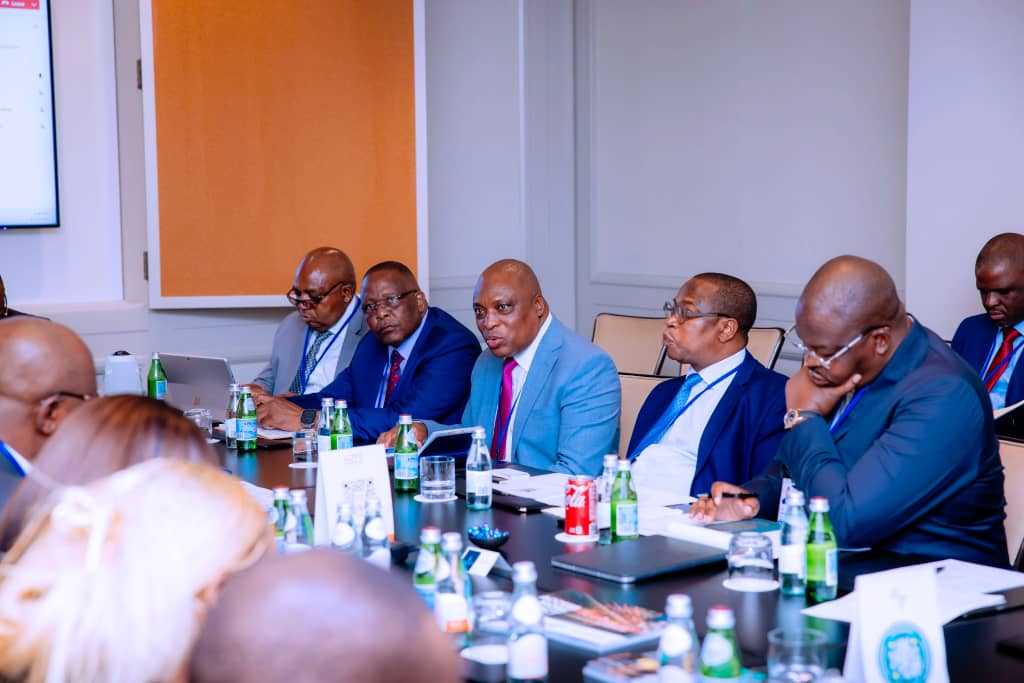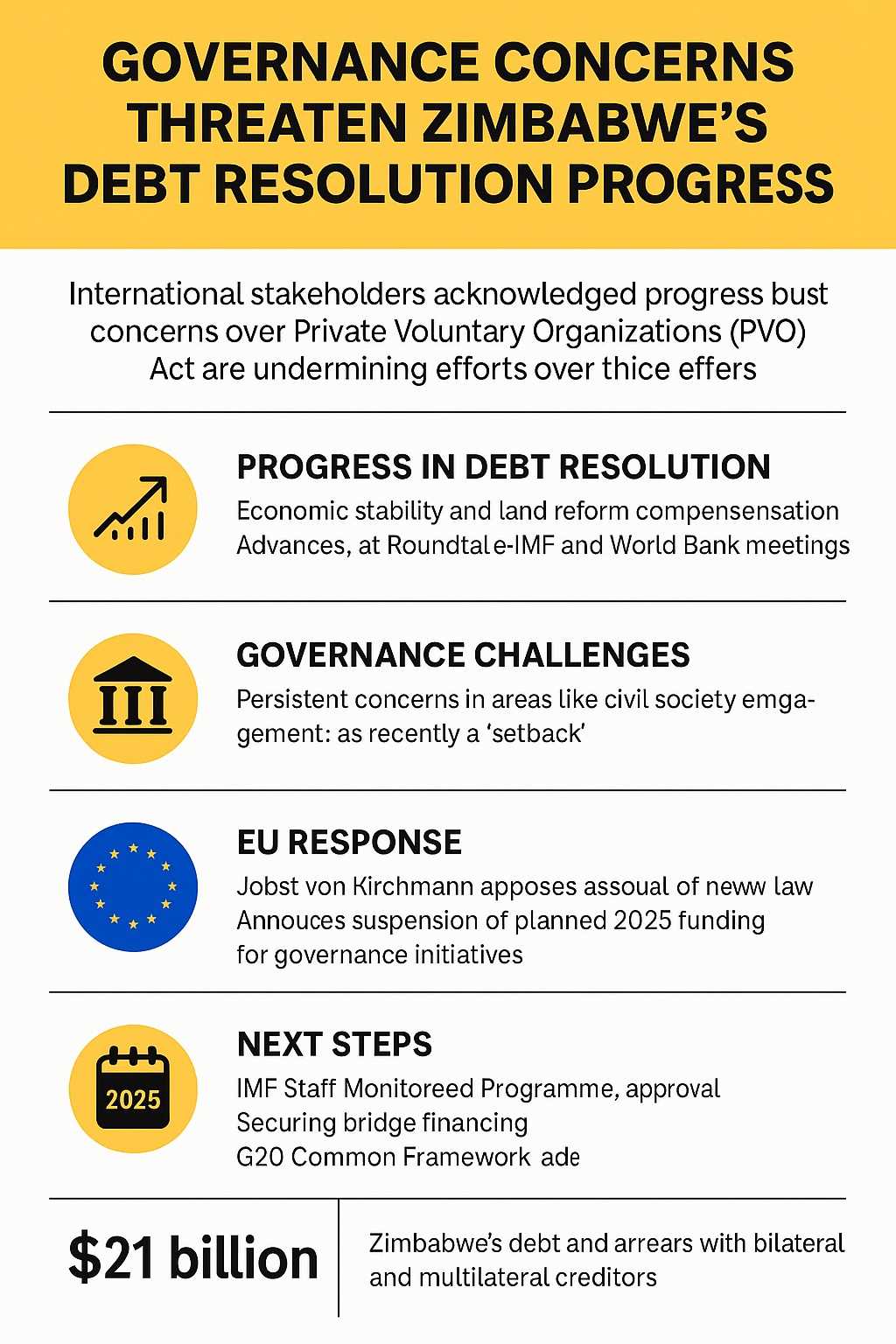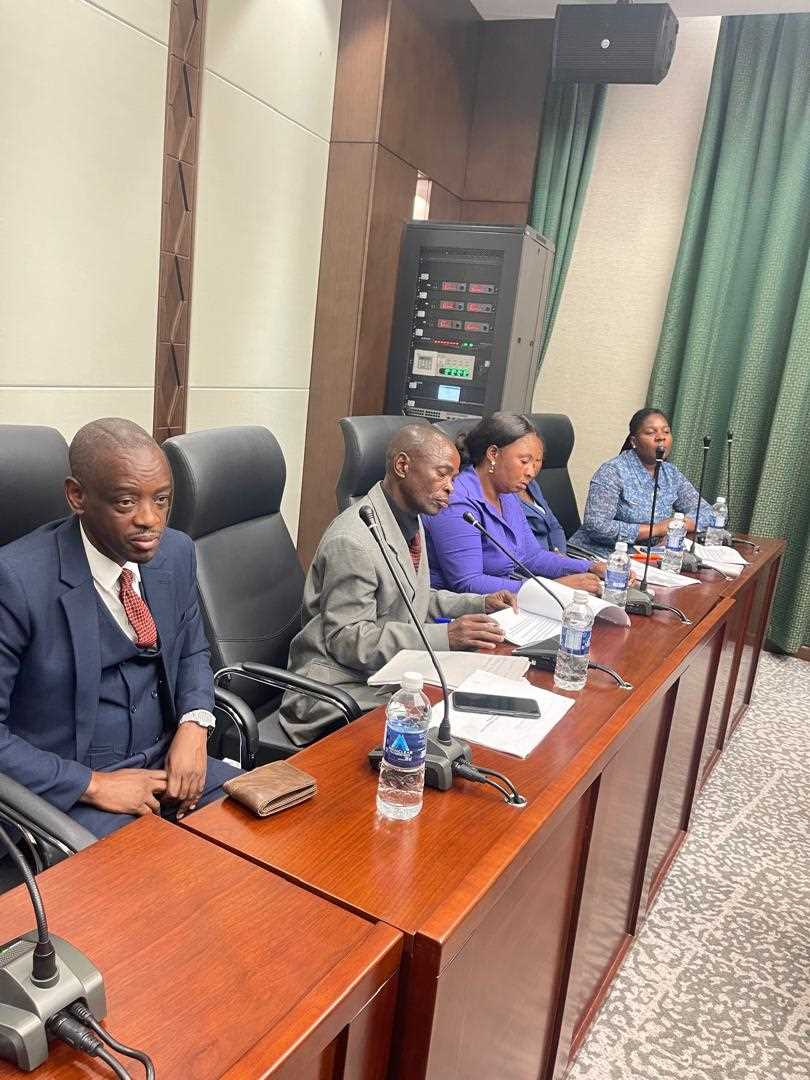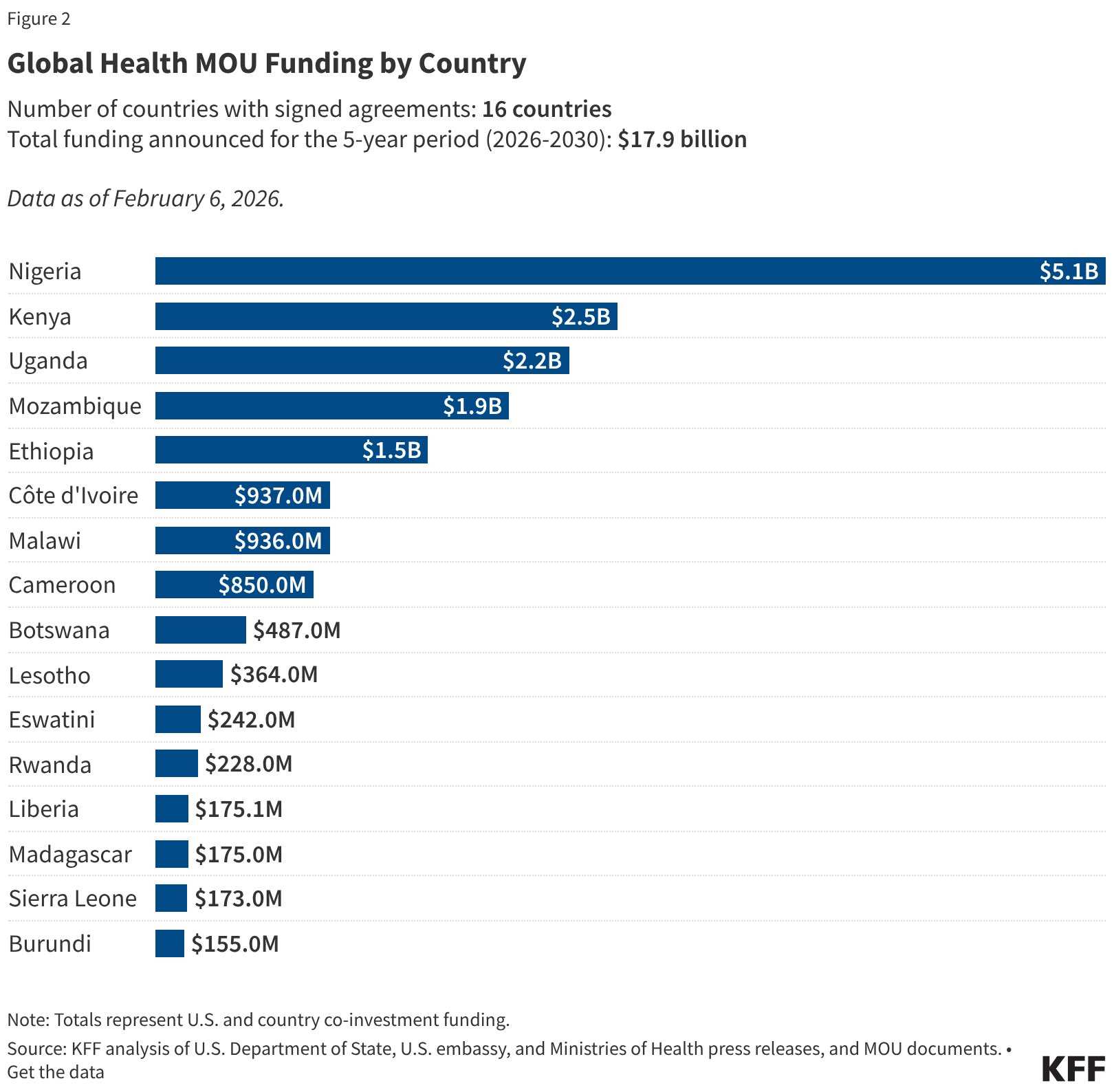
Nyashadzashe Ndoro- Chief Reporter
International stakeholders have acknowledged significant progress in Zimbabwe's structured dialogue for arrears clearance and debt resolution, yet concerns over governance, particularly the recently enacted controversial Private Voluntary Organizations Act, are casting a shadow over these efforts.
During a roundtable meeting held in Washington D.C. last week, on the sidelines of the International Monetary Fund and World Bank Group Spring Meetings, participants, including international financial institutions, creditor nations, and regional bodies, commended Zimbabwe for advancements in economic stability and land reform compensation. However, a consistent call was made for greater commitment to governance reforms.
Joachim Chissano, the former President of Mozambique facilitating the dialogue, noted that while substantial ground had been covered with agreed commitments and targets, challenges persist in areas such as civil society engagement, democratic processes, judicial matters, and freedoms of assembly and expression.

Akinwumi Adesina, President of the African Development Bank and a key champion of the process, echoed this sentiment, highlighting the recent passage of the PVO Bill as a "significant setback" and poses a risk to the arrears clearance and debt resolution process.
The PVO Act, gazetted as law three weeks ago, introduces stricter regulations and oversight for civic groups and NGOs, granting the government broad powers to monitor their operations, funding, and affiliations.
The European Union has already announced the suspension of its planned 2025 funding for Zimbabwe's good governance initiatives in response to the enactment of the PVO Bill without concluding consultations with civil society.
EU Ambassador to Zimbabwe, Jobst von Kirchmann, stated that the law undermines Zimbabwe's commitments under the ongoing debt resolution process, particularly concerning the expansion of civic space.
He expressed disappointment that Zimbabwe had not upheld its own commitments and indicated the EU remains open to reconsidering its position if the government demonstrates a genuine commitment to its governance obligations.
“Zimbabwe has over USD 21 billion in debt and arrears with bilateral and multilateral creditors,” von Kirchmann stated.
“Several years ago, the Government of Zimbabwe initiated a commendable arrears clearance and debt resolution process. It is disappointing to see that Zimbabwe has not upheld its own commitments under this process, particularly regarding the expansion of civic space.”
Related Stories
He added: “The enactment of the PVO Amendment Bill, without concluding consultations to address the concerns of civil society organizations, has further reinforced negative trends in governance. As a consequence, the European Union has decided to discontinue its planned targeted 2025 funding in support of the government’s good governance initiatives under the structured dialogue framework."
Despite these governance concerns, stakeholders at the roundtable outlined several next steps to advance the debt relief process. These include the IMF's potential approval of a Staff Monitored Programme for Zimbabwe, securing bridge loan financing from potential donors, exploring additional resources from the African Development Fund, and prioritizing Zimbabwe's arrears clearance within the G20 Common Framework.
Zimbabwe's Minister of Finance, Economic Development, and Investment Promotion, Mthuli Ncube, presented an optimistic economic outlook, projecting a 6.0% growth for 2025 and highlighting the introduction of the ZiG currency as a measure to restore macroeconomic stability.
He outlined a roadmap aiming for an IMF Staff Monitored Programme in 2025, clearing arrears with international financial institutions by early 2026, and completing comprehensive debt restructuring under the G20 Common Framework.
The Southern African Development Community Executive Secretary, Elias Magosi, cited the strategic importance of supporting Zimbabwe's recovery for regional trade and development.
Meanwhile, back in Zimbabwe, progress was noted in the compensation of former farm owners, with the first US dollar cash payments reportedly made.
Zimbabwe, last month, announced an initial pay-out of US$3 million to white farmers whose farms were seized under the controversial land reform programme more than two decades ago.
A representative of the former Commercial Farmers Union described this as a "momentous event" and acknowledged the government's commitment to the compensation process.
“Monday, 24 March 2025, saw the first US Dollar Cash payments due under this plan being paid to the signed-up Former Farm Owners,” he said.
“After almost 20 years, we, as Zimbabweans had been able to put aside our differences and, in an atmosphere of mutual respect and trust, negotiated an agreement that laid the foundation for the payment of compensation for improvements on farms which the government of Zimbabwe had acquired under the Fast Track Land Reform Programme.”
“I would like, as a representative of these farmers, to sincerely thank His Excellency, President Dr. E.D. Mnangagwa and his government for standing by the commitment made by His Excellency in 2018 to pay compensation for acquired farms in line with the Constitution of Zimbabwe,” he said.


















Leave Comments